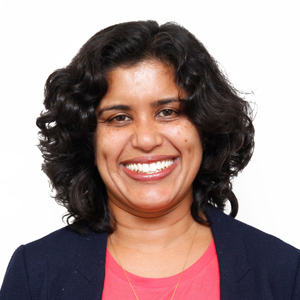An open letter to a professor who comforted me
Dear Faculty Member of Johns Hopkins University,
You probably don’t remember speaking to me that night. But you did, right by the cascade of shopping carts outside the grocery store in Baltimore.
I was a mess: unshowered, filthy hair pulled into an attempt at a ponytail and glasses because I couldn’t fit contact lenses into my puffy eyes.
I had spent the past two days crying in my studio apartment. Forty-eight hours before, I had been handed my first and (since then) only academic failure. I had received a conditional pass for my Ph.D. qualifying exams.
I acknowledge that my exam evaluation had the word “pass” in it. But with the “conditional” thrown in, it might as well have been a “fail.” To quote the TV show “Glee,” it was the “Asian F.”
Until that point, I had never fallen short of my efforts. The conditional pass scared me: Was I about to wind up as a cautionary tale about someone who thought she was better than she really was and ended up flunking out of grad school?
Crying requires energy, and I finally had reached the point when I needed more food to continue. So there I was, feeling so lost I couldn’t decide if I wanted the shopping cart on the left or the right. I was blocking you. By now, the news of my conditional pass had swept through the basic sciences establishment. I may have been a student in the largest graduate training program at Hopkins, encompassing more than 90 laboratories, but gossip has a way of making a behemoth function like a small group of fishermen’s wives.
All you said to get my attention was, “I heard, and I am sorry.”
I turned around, surprised anyone would speak to me in my state, let alone offer sympathy. You stood there, kindness in your eyes. I tried to say something, but much to my alarm, the tears welled up again. You saw the tears and, still looking steadfastly at me with those blue eyes, said, “You’ll get through this.”
Oh, the power of words. I needed to hear that. I needed to hear that I would be fine from someone on the outside. My parents, friends, lab mates and thesis adviser all had rallied around me, but the cynical me felt they were vested in my success. You didn’t have a stake in my future, but you seemed to think I’d bounce back. All I could do in response to your words was nod.
The next day, I returned to the lab. I was shaken and uncertain what was going to happen in the long run. But your words had the immediate effect of making me latch onto the task at hand. A month later, I aced the makeup test and qualified for a Ph.D. thesis.
The tailspin triggered by the conditional pass continued for a while as I grappled with what the sense of failure meant. I forced myself to reassess my life goals, skills and priorities over a year or two and eventually turned my trajectory and charted a different course.
After all, you did say I’d get through it. And I did.
Thank you for taking those few minutes on that freezing February night to speak to me.
Sincerely,
Raj Mukhopadhyay
Enjoy reading ASBMB Today?
Become a member to receive the print edition four times a year and the digital edition monthly.
Learn moreGet the latest from ASBMB Today
Enter your email address, and we’ll send you a weekly email with recent articles, interviews and more.
Latest in Opinions
Opinions highlights or most popular articles

Women’s health cannot leave rare diseases behind
A physician living with lymphangioleiomyomatosis and a basic scientist explain why patient-driven, trial-ready research is essential to turning momentum into meaningful progress.

Making my spicy brain work for me
Researcher Reid Blanchett reflects on her journey navigating mental health struggles through graduate school. She found a new path in bioinformatics, proving that science can be flexible, forgiving and full of second chances.

The tortoise wins: How slowing down saved my Ph.D.
Graduate student Amy Bounds reflects on how slowing down in the lab not only improved her relationship with work but also made her a more productive scientist.

How pediatric cataracts shaped my scientific journey
Undergraduate student Grace Jones shares how she transformed her childhood cataract diagnosis into a scientific purpose. She explores how biochemistry can bring a clearer vision to others, and how personal history can shape discovery.

Debugging my code and teaching with ChatGPT
AI tools like ChatGPT have changed the way an assistant professor teaches and does research. But, he asserts that real growth still comes from struggle, and educators must help students use AI wisely — as scaffolds, not shortcuts.

AI in the lab: The power of smarter questions
An assistant professor discusses AI's evolution from a buzzword to a trusted research partner. It helps streamline reviews, troubleshoot code, save time and spark ideas, but its success relies on combining AI with expertise and critical thinking.

